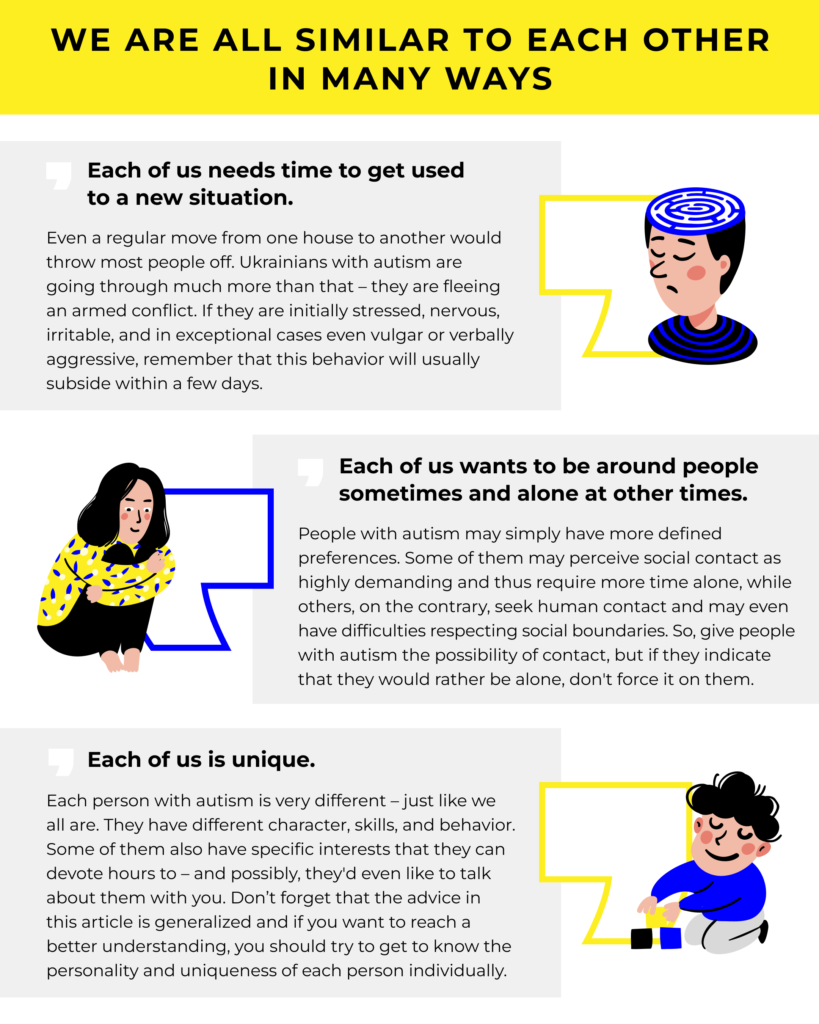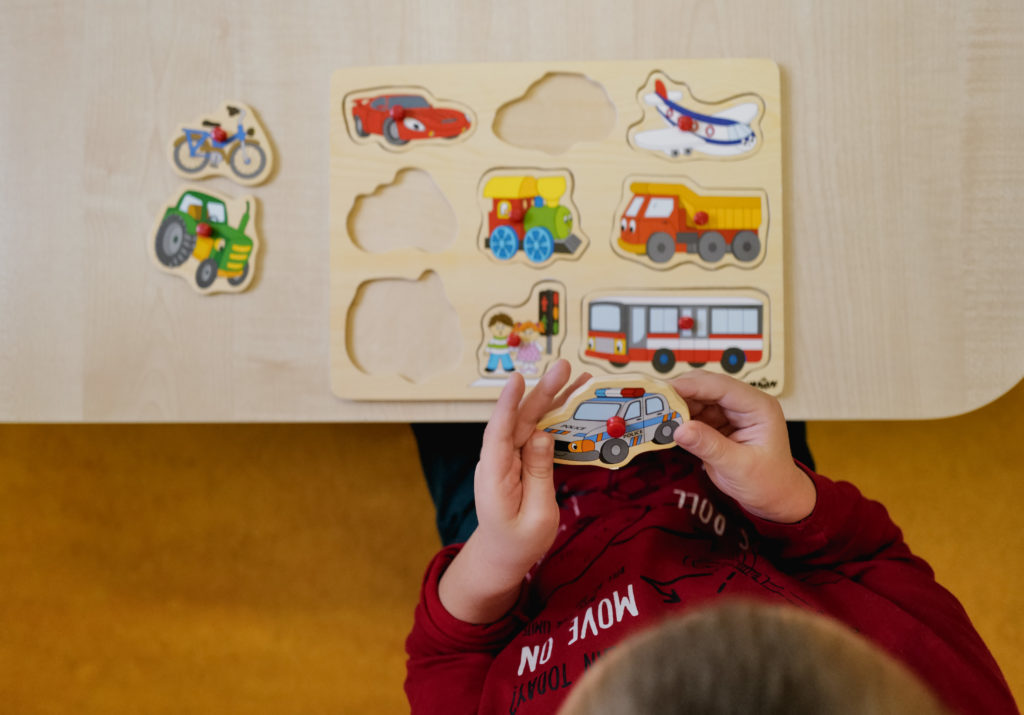A therapist Julius Bittmann and a psychologist Kateřina Thorová from the National Institute for Autism (NAUTIS) have prepared a few tips for the Autismport.cz server that will help you communicate with autistic refugees.
1. Be kind. Ukrainians fleeing war were forced to deal with a whole range of new, often stressful situations. In addition, many people with autism have very specific needs: for example, they can be bothered by certain sounds, smells, bright light, and even specific foods. Some of them also have difficulty establishing social contacts, they can communicate in a tactless or impolite way, but it does not mean that they are unkind or ill-mannered. It is just sometimes more difficult for them to estimate the social context and express their own emotions. Therefore, do not take similar situations personally, give people with autism time to get used to the new environment and try to be understanding.
2. Be specific. People with autism spectrum disorder may have trouble understanding non-verbal cues and gestures even in their native language. If we also consider the language barrier, which is often incredibly challenging for refugees with autism, there is a lot of room for misunderstanding. Even a word that sounds very similar in Ukrainian and Czech can be completely incomprehensible to them. Therefore, try to be legible, express your thoughts clearly and set your boundaries. At the same time, try to convey information to people with autism slowly and in smaller doses.

3. Be creative. Experiment with different ways of communication, be patient and try to figure out how to best understand refugees with autism. For example, photos, drawings, but also written communication (in Ukrainian alphabet) may help you. You may also be able to have a conversation in a foreign language, such as English, which many children with autism are familiar with through online games. If you want to explain something to people with autism, try using words, pictures, photos, writing or even gestures and demonstration. Pasparta Publishing House sells many handy tools.
4. Be helpful. Connect people with autism to services that can help them, whether through everyday care, social or educational counselling, therapeutic services, or respite care. You can also provide relief to a someone with autism by ensuring contact with a person who, if necessary, will help them (in person or over the phone) to solve current difficulties, such as loss of orientation, communication difficulties, anxiety or panic, etc.
5. Be curious. It is completely normal to not be sure how to proceed in certain situations. It is often best to directly consult the parents of autistic children or the verbal people with autism on what their needs are, what bothers them, what they enjoy. Ask how you can help. Be interested in their experience and point of view.

For the purpose of Rozumiju, we have shortened the individual tips. Read the original article on Autismport.cz.
